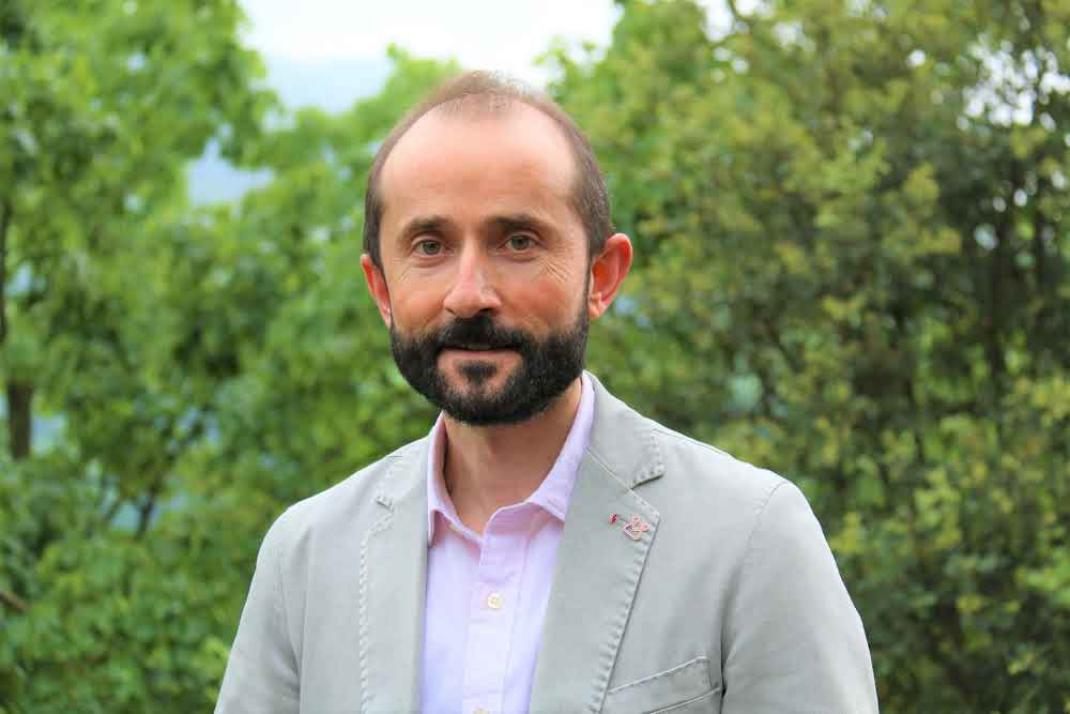ANDER ETXEBERRIA - Live from Mondragon, SPAIN on Zoom
Event Date: August 1, 2025
Time: 11:00 am

This program is on Zoom at 11:00 am (Pacific) – To guarantee admittance to the live program, please Register by 10:30 am (pacific). Otherwise, you will receive the video recording in the evening.
$20 – $15 for Praxis members To Register: Click Here
The Mondragon Cooperatives in the Basque Region of Spain with ANDER ETXEBERRIA
In the 1940s and 50s, the Basque region of Spain was the poorest area in that country, With nearly 70% unemployment and a severe depression permeating the region, the people felt little hope. But, thanks to the assignment of Father Jose Maria Arizmendiarietta to the local Catholic Church, the fate of the region was about to change dramatically. Arizmendi (as he is known) created a polytechnic school to help the locals gain skills for industrial jobs and helped incubate the first worker-owned business in 1956.
Today, the Basque region is the wealthiest area of Spain, even more prosperous than Catalonia, where Barcelona is located. Wealthy does not mean that there are mega mansions in the hills above Mondragon or that large gated communities flourish in the seaside town of San Sebastian. It means that the Basque region has the highest GDP per person in Spain and that poverty has been mostly eliminated. Worker-ownership has been the key to this prosperity.
The Mondragon Cooperatives are the largest complex of worker-owned businesses in the world, consisting of nearly 100 businesses and 80,000 worker-owners. The cooperatives include many industrial businesses that make appliances for hotels and restaurants, car parts that are sold all over the world to major auto companies, wind turbines, solar panels, medical supplies, bicycles, heat pumps, computer chips, and many other products. The Mondragon Cooperatives also comprise a banking system with nearly 400 branches, a university system with four campuses, including the Basque Culinary Center, a supermarket chain with branches located throughout Spain, and the largest Research and Development complex in all of Europe!
At Mondragon, there are no stock options for workers. Instead, one worker-owner equals one share, equals one vote. No one person can own more than one share. If a person leaves a Mondragon cooperative they can cash in their share but not sell it. This protects all Mondragon businesses from being bought out by a larger corporation or a monopoly.
And, all of this is worker-owned! Their achievement demonstrates what humans are capable of achieving in a relatively short amount of time. Another economic reality is possible and Mondragon shows the way to a more equitable, sustainable, and socially just way of living and thriving.
Ander Etxeberria is the Director of Dissemination at the Mondragon Cooperatives in Spain and is the most knowledgeable person on the history and current situation of the Mondragon Cooperatives. He studied engineering at Mondragon University and Sociology at the Universidad de Deusto (Jesuit University) in Bilbao, Spain. Ander also oversees all of Praxis Peace Institutes seminars in Mondragon (to date, there have been 13 seminars).